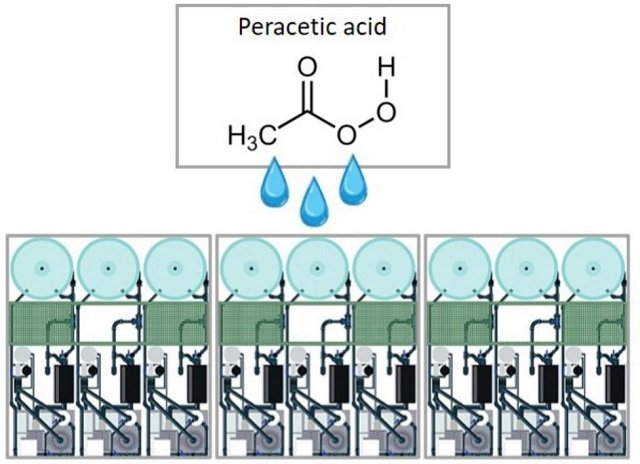Norway – While ocean acidification was initially perceived as a threat only to the marine realm, the authors of a new publication argue that it is also an emerging human health issue.
The global threats from carbon dioxide (CO2) accumulating in the world’s oceans and driving ongoing ocean acidification are becoming increasingly evident. As humans extract and burn fossil fuels and drive deforestation, CO2 in the atmosphere increases, with levels now far exceeding those that occurred in preindustrial times. Of the released CO2, around 25% is taken up by the oceans where it interacts with seawater and forms carbonic acid, leading to a reduction in pH, an increase in acidification, and an alteration of carbonate chemistry. The average surface pH of the ocean has already decreased by 0.1 unit since the beginning of the Industrial Revolution, and a further 0.3–0.4 unit decrease is expected by the end of the century. As pH is measured on the logarithmic scale, this corresponds to a doubling in acidity by 2100. These changes are happening at an unprecedented scale and speed, rapidly exposing marine ecosystems to conditions they have not experienced over millions of years.
A wide range of organisms, from bacteria to fish, have been demonstrated to be negatively impacted by ocean acidification. As acidification progresses, many organisms must invest additional energy to maintain their acid-base balance, metabolic processes, or other biological functions, with consequences for their growth, reproduction, and survival. Consequently, around 50% of all the species tested in the laboratory have shown negative responses to ocean acidification. On the other hand, some photosynthetic organisms can benefit from the increased concentration of CO2 where it is used for photosynthesis. Such changes at the organism level can modify the balance between species and drive profound ecosystem changes that influence human health and well-being. Negative impacts of ocean acidification are already visible in some parts of the world; for example, the observed collapse of the oyster aquaculture industry along the west coast of the United States in 2007 has been attributed to ocean acidification. Such impacts, and consequences on human health and well-being, are anticipated to intensify with future acidification.
In a recent article in The International Journal of Environmental Research and Public Health, entitled Ocean Acidification and Human Health, scientists look at how ocean acidification effects human health and well-being. This perspective involves understanding substantial complexity, making this particular driver one of the more challenging to comprehend and manage. Compared to studies of other stressors, which tend to focus on direct effects (extreme events such as floods or storms, enrichment of chemical additives, or persistent elevated temperature), ocean acidification manifests in layers of complexity involving indirect effects and interactions. While studies of ocean acidification initially focused on the potential direct effects, research now incorporates the ecosystem-level complexity of indirect effects.
“Ocean acidification will impact humans in many more ways than are traditionally considered. It has wide-ranging implications including the accessibility and quality of food that we eat, it will affect the air that we breathe, the medicine we need and the views that we enjoy”, says Dr. Richard Bellerby, professor and chief scientist at The Norwegian Institute for Water Research (NIVA) and co-author of the recent paper.
As such, the authors highlight here that ocean acidification is very much an emerging human health issue of substantially greater complexity, and possibly scale, than currently appreciated. Given how ocean acidification impacts on human health and well-being, recognizing and researching these complexities may allow the adaptation of management such that not only harms to human health are reduced, but the benefits enhanced.
“Our study highlights the urgent need for interdisciplinary, cross-sector research to understand and prepare for challenges linking ocean acidification with social development under climate change”, Bellerby concludes.
Reference (open access):
Falkenberg, L.J.; Bellerby, R.G.; Connell, S.D.; Fleming, L.E.; Maycock, B.; Russell, B.D.; Sullivan, F.J.; Dupont, S. Ocean Acidification and Human Health. Int. J. Environ. Res. Public Health 2020, 17, 4563.
Stay Always Informed
Join our communities to instantly receive the most important news, reports, and analysis from the aquaculture industry.
Source: Norwegian Institute for Water Research (NIVA)
Editor at the digital magazine AquaHoy. He holds a degree in Aquaculture Biology from the National University of Santa (UNS) and a Master’s degree in Science and Innovation Management from the Polytechnic University of Valencia, with postgraduate diplomas in Business Innovation and Innovation Management. He possesses extensive experience in the aquaculture and fisheries sector, having led the Fisheries Innovation Unit of the National Program for Innovation in Fisheries and Aquaculture (PNIPA). He has served as a senior consultant in technology watch, an innovation project formulator and advisor, and a lecturer at UNS. He is a member of the Peruvian College of Biologists and was recognized by the World Aquaculture Society (WAS) in 2016 for his contribution to aquaculture.







